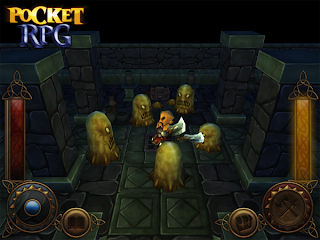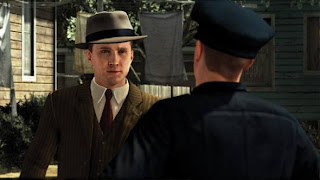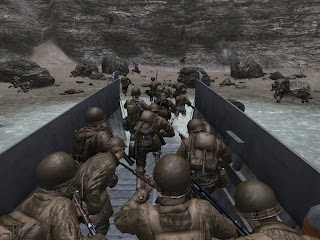One of the things that has always confused me about the games industry is the many of the fans themselves, and their insistence that they’re paying too much for games.
When you break things down, that’s not really the case at all. Doing a quick bit of maths turns up these results: if you buy a DVD for $15 and you watch it three times (which would be most people’s average across their DVD collections, I would suspect), it comes out at $2.5/ hour entertainment. Buy a $50 game that lasts 15 hours (which is short for a modern blockbuster game, considering how many hours people pile into multiplayer), comes out at $3.33/ hour – not much more at all.
Play a $50 game like Call of Duty online for 100 hours (easy to do), or your average RPG, and you’re looking at $0.50-$1.00/ hour, if not a better ratio than that.
But that attitude of “this costs too much, I’ll buy it second hand/ on sale,” persists. It’s confusing, because that attitude hurts the industry that gamers supposedly are fans of.
When a game is released, the RRP is not there to try and gouge gamers. That’s the price that developers and publishers have set as “fair,” i.e. something that lets them work at comfortable margin, while giving players something content in return that is appropriate for their investment.
Is it a good idea to give publishers and developers a decent margin for their work? Absolutely. Here’s five reasons why:
 |
| It would be nice if Cavia was still around… |
Right now, a single underperforming game can sink a developer, or in some cases, critically acclaimed games and even unfinished games can skin developers. Why? Because they work on thin margins and very tight deadlines. If development time gets blown out, or something goes wrong along the way we end up with a bad game or the publisher ends up putting a substandard game into the market.
If people paid full price for their games then the developers could afford to spend the time to perfect their games, and publishers could afford to keep developers that had a proverbial bad day open. I know I would much rather have the likes of Cavia (Nier), and Pandemic (Mercenaries) around still.
Another common complaint amongst gamers is that there’s not enough creativity in the games industry now. It’s too reliant on sequels, they claim.
 |
| Games like Little Kings Story need financial backing to happen |
But the problem is that it is very, very expensive to create a new, successful IP. From developing a concept out, to publishing the first game (which is nearly always a release that performs marginally well at retail, at best), to marketing a new product (much harder and more expensive than a brand name that’s already established); creating new games required financing that many publishers and developers just don’t have access to these days.
If publishers were receiving fair profit from their investments, they’d be able to greenlight more risky projects. Then we would see that creativity return to the games industry. When every game doesn’t have to rival Call of Duty for sales, we’ll start seeing more ambitious RPG and puzzle games. We’ll see FPSers that take some risks, rather than crib a formula entirely from Activision.
And there’s a second angle to this point – part of having an industry that can truly embrace creativity is having developers all around the world. Right now, it’s almost commercially impossible to have development studios in places like Australia. Margins are too thin and the strength of the Australian dollar means that the costs of developing a game here for global export have escalated dramatically.
For the sake of the industry we want successful developers in Australia, Japan, Brazil, even the Middle East and Africa. We’re not going to have that as long as publishers keep fighting with margins.
 |
| South African game development… there might be talent there, if they had money coming in |
Here’s one of the big ironies: the more people buy games on sale or second hand, the more prices go up. Sales are not good for publishers, they usually mean a boost in sales numbers, but profit from the game, if anything, drops. Second hand games cost even more.
 |
| L.A Noire. Another unfortunate recent casualty. |
If, hypothetically, everyone bought a new game at $60, then the publishers would have a great deal more certainty in terms of sales forecasts. Currently, when a publisher sits down to decide what to price a game at, it has to take into account everything from review scores (bad review score means more players wait for it to be cheaper), to how many copies are likely to be traded in and then sold second hand. This means, to try and make a profit from a game, the price of the game needs to be inflated at launch, to maximise the short window the publisher has to make money.
With certainty, a publisher can afford to be thinner on the margins on each individual game, because they’re able to more accurately forecast sales. Prices go down, everyone wins.
This one’s a bit simple and obvious, but if second hand sales and piracy weren’t a problem for developers and publishers, then there’d be no need for DRM and online passes.
Given that a substantial numbers of gamers object to this as much on principle as any real difficulties they’ve experienced with it, getting rid of the “dirty words” can only be a good thing for making the games industry a cheerier place to be involved with.
Publishers and developers who are successful don’t tend to sit on their cash reserves. They’re not Scrooge McDucks with vaults filled with money that the managers take regular baths in. No. Profit is almost always reinvested, in new projects and in bigger projects.
 |
| Call of Duty only does well from continued, massive investment |
Look at what has happened with Call of Duty. The production budget of each game is bigger and bigger because each game sells more copies. That means that the Call of Duty fans get more for their money next time.
And consider how much the humble single player game is suffering because the multiplayer game is so dominant right now. With additional resources, developers would be able to put some care back into crafting a big and exciting single player game.
It’s expensive making good games in the modern industry, and I would personally love to see the fans start to stand behind their favourite companies and consider their game purchases as being investments, rather than expenses. The payback when a publisher and developer combination are successful is far better for gamers than when a game bombs, after all.







I definitely agree with most of the sentiments here. I mostly buy games new; I don't care that they're a little bit more expensive, I'd much rather support my favourite developers by purchasing games at full retail price than shafting them by picking up games used. There are a few exceptions (such as sports games or the odd old game) but for games just released, I will get them new.
Another interesting thing to have mentioned would be the excessive quantities of preorder bonuses that exist. Developers have gotten to the point where they need to offer extra stuff as an incentive to buy the game for full value. Much like online passes, I imagine these would disappear if the industry steered back away from used gaming.
I do have one bone to pick, though: using Pandemic might not be the best example. They did give us great games like Star Wars Battlefront, the original Mercenaries, and even Destroy All Humans! However, they did give us the bug-ridden joke of Mercenaries 2 and the interesting but ultimately disappointing GTA-clone The Saboteur. While I did like Pandemic as a studio, their most recent titles were disappointing to say the least. Their closure wasn't entirely unexpected.
I definitely agree with most of the sentiments here. I mostly buy games new; I don't care that they're a little bit more expensive, I'd much rather support my favourite developers by purchasing games at full retail price than shafting them by picking up games used. There are a few exceptions (such as sports games or the odd old game) but for games just released, I will get them new.
Another interesting thing to have mentioned would be the excessive quantities of preorder bonuses that exist. Developers have gotten to the point where they need to offer extra stuff as an incentive to buy the game for full value. Much like online passes, I imagine these would disappear if the industry steered back away from used gaming.
I do have one bone to pick, though: using Pandemic might not be the best example. They did give us great games like Star Wars Battlefront, the original Mercenaries, and even Destroy All Humans! However, they did give us the bug-ridden joke of Mercenaries 2 and the interesting but ultimately disappointing GTA-clone The Saboteur. While I did like Pandemic as a studio, their most recent titles were disappointing to say the least. Their closure wasn't entirely unexpected.
Thanks for the comment, Nick – I agree that the preorder stuff would probably scale back a bit if the used game market went way. While I think there should always be a place for premium special editions, I don't like that the developers and publishers feel the need to beg and bribe people to guy the games "legit."
As for Pandemic – they did have that really awesome looking pirate game on the way before they were closed. I was willing to give them one more chance 😉
Thanks for the comment, Nick – I agree that the preorder stuff would probably scale back a bit if the used game market went way. While I think there should always be a place for premium special editions, I don't like that the developers and publishers feel the need to beg and bribe people to guy the games "legit."
As for Pandemic – they did have that really awesome looking pirate game on the way before they were closed. I was willing to give them one more chance 😉